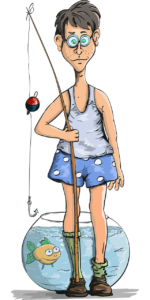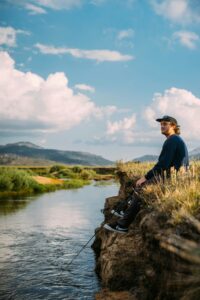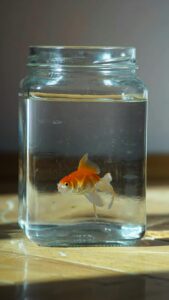Are you eagerly waiting to cast your line and reel in some big catches? The anticipation of fishing season is undeniably exciting for enthusiasts like yourself. With the tranquility of the water and the thrill of the catch, fishing is a beloved pastime for many. However, the question remains: when does fishing season officially begin?
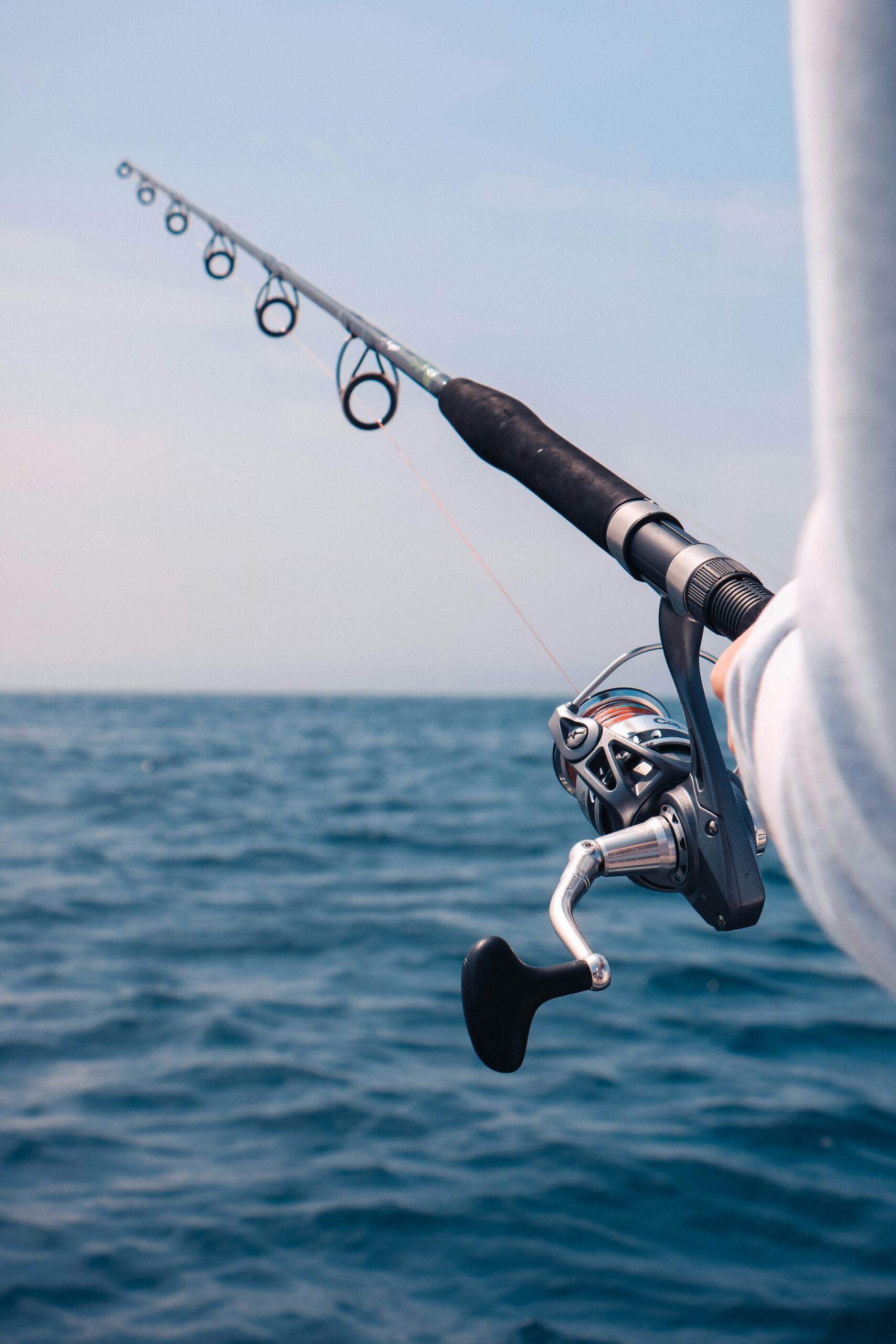
Factors that Determine the Fishing Season Start
Fishing season start dates can vary depending on several factors. These factors include the geographical location, climate conditions, and regulations and laws set by local, state/provincial, and federal authorities. By understanding these factors, anglers can plan their fishing trips accordingly and ensure a successful and enjoyable fishing experience.
Geographical Location
Geographical location plays a significant role in determining the fishing season start. Different areas have distinct aquatic ecosystems and fish species that thrive in specific conditions. For instance, lakes, rivers, oceans, ponds, canals, and reservoirs each have unique characteristics that influence when the fishing season begins. By knowing the fishing season start for a particular location, anglers can target the specific fish species that are most abundant during that time.
Climate Conditions
Climate conditions also impact the start of the fishing season. Fish are cold-blooded creatures, which means their activity levels and feeding habits are strongly influenced by water temperature. As the seasons change, water temperatures fluctuate, affecting fish behavior. For example, during the winter, when temperatures drop, fish tend to be less active and can be more challenging to catch. Understanding the preferred climate conditions for different fish species can help anglers determine the best time to start fishing.
Regulations and Laws
Regulations and laws set by local, state/provincial, and federal authorities have a significant impact on the fishing season start. These regulations aim to protect fish populations, promote sustainability, and ensure fair and ethical fishing practices. Catch limits, protected areas, and fishing license requirements are just a few examples of regulations that dictate when fishing can begin. It is crucial for anglers to familiarize themselves with these regulations to avoid penalties and legal issues and contribute to the conservation of fish populations.
Fishing Season Start for Different Locations
The fishing season start can vary depending on the type of location. Whether it’s freshwater or saltwater fishing, understanding the specific fishing season start times for different locations can help anglers plan their fishing trips accordingly.
Freshwater Fishing
Freshwater fishing offers a diverse range of fishing opportunities, including lakes, rivers, ponds, canals, and reservoirs. Each of these freshwater locations has its own fishing season start, dictated by factors such as water temperature, fish migration patterns, and local regulations. In general, the fishing season starts for freshwater locations are divided into spring, summer, fall, and winter fishing.
Saltwater Fishing
Saltwater fishing is another popular choice for anglers, with opportunities to catch various species of fish in oceans and seas. The fishing season start for saltwater locations is also influenced by factors such as water temperature, fish migration patterns, and regulations. Similar to freshwater fishing, the saltwater fishing season is divided into spring, summer, fall, and winter fishing.
Specific Locations (e.g., Lakes, Rivers, Oceans)
Specific locations within freshwater and saltwater environments may have their own unique fishing season start. Lakes, rivers, oceans, ponds, canals, and reservoirs each have distinct characteristics that affect when the fishing season begins. For example, some lakes may have a delayed start to allow fish populations to spawn, while certain rivers may have specific dates for catch-and-release fishing. By researching and understanding the fishing season start for specific locations, anglers can maximize their chances of success.
Freshwater Fishing Season Start
Freshwater fishing season start times can vary depending on the seasons and specific fish species. Understanding the fishing season start for freshwater environments allows anglers to target their preferred fish species effectively.
Spring Fishing
Spring is a popular time for freshwater fishing, as many fish species become more active after the cold winter months. As water temperatures rise, fish start to feed more actively and move into shallower waters. This increased activity makes spring an excellent time for catching fish such as bass, trout, and crappie. Anglers can take advantage of this abundance and plan their fishing trips accordingly.
Summer Fishing
Summer is another exciting season for freshwater fishing, as fish continue to be active and readily feed. Depending on the specific location, fish species may exhibit different behaviors during this time. Some fish may retreat to deeper waters to escape the warmer surface temperatures, while others may seek shelter in shaded areas or near structures. Anglers can adjust their fishing techniques and target these areas to increase their chances of success.
Fall Fishing
Fall brings new opportunities for freshwater fishing, as fish prepare for the upcoming winter months. As the water temperature begins to cool, fish become more active and migrate towards shallower waters. Anglers can find success in targeting fish species such as walleye, pike, and salmon during this time. Understanding the behavioral patterns and preferences of these fish species can help anglers plan their fishing trips strategically.
Winter Fishing
Winter fishing in freshwater environments can be a challenging but rewarding experience. As water temperatures drop significantly, fish become less active and may move to deeper, warmer waters. Ice fishing is a popular technique during this season, where anglers drill holes in frozen lakes and ponds to access fish beneath the ice. By understanding the habits and habitats of cold-water fish species, anglers can safely and effectively enjoy winter fishing.
Saltwater Fishing Season Start
Saltwater fishing season start times are influenced by factors such as water temperature, fish migration patterns, and local regulations. Anglers interested in saltwater fishing should pay attention to the specific season start times to target their desired saltwater fish species.
Spring Fishing
Spring marks the beginning of the saltwater fishing season in many locations. As the water temperature rises, saltwater fish become more active and migrate closer to shore. This movement creates prime fishing opportunities for species such as striped bass, flounder, and bluefish. Anglers can take advantage of the increased fish activity to have a successful spring fishing experience.
Summer Fishing
Summer is a popular time for saltwater fishing, as many fish species reach their peak feeding activity during this season. The warmer water temperatures attract a wide variety of saltwater fish, including snapper, grouper, tuna, and mahi-mahi. Understanding the preferred habitats and feeding patterns of these fish species can help anglers target them effectively and have a memorable summer fishing trip.
Fall Fishing
Fall is a transitional season in saltwater fishing, as some fish species start to migrate or change their feeding habits. This change can present unique challenges but also exciting opportunities. Fish such as redfish, flounder, and sheepshead are commonly targeted during the fall season. Anglers who adapt their fishing techniques and follow the fish migration patterns can continue to have successful fishing trips in the changing conditions.
Winter Fishing
Winter saltwater fishing can provide anglers with a different experience compared to other seasons. While some fish species migrate towards warmer waters, others remain in the colder climates. Species such as cod, flounder, and blackfish are commonly sought after during the winter months. Proper preparation and knowledge of the preferred habitats and behaviors of these fish species are essential for a successful winter saltwater fishing trip.
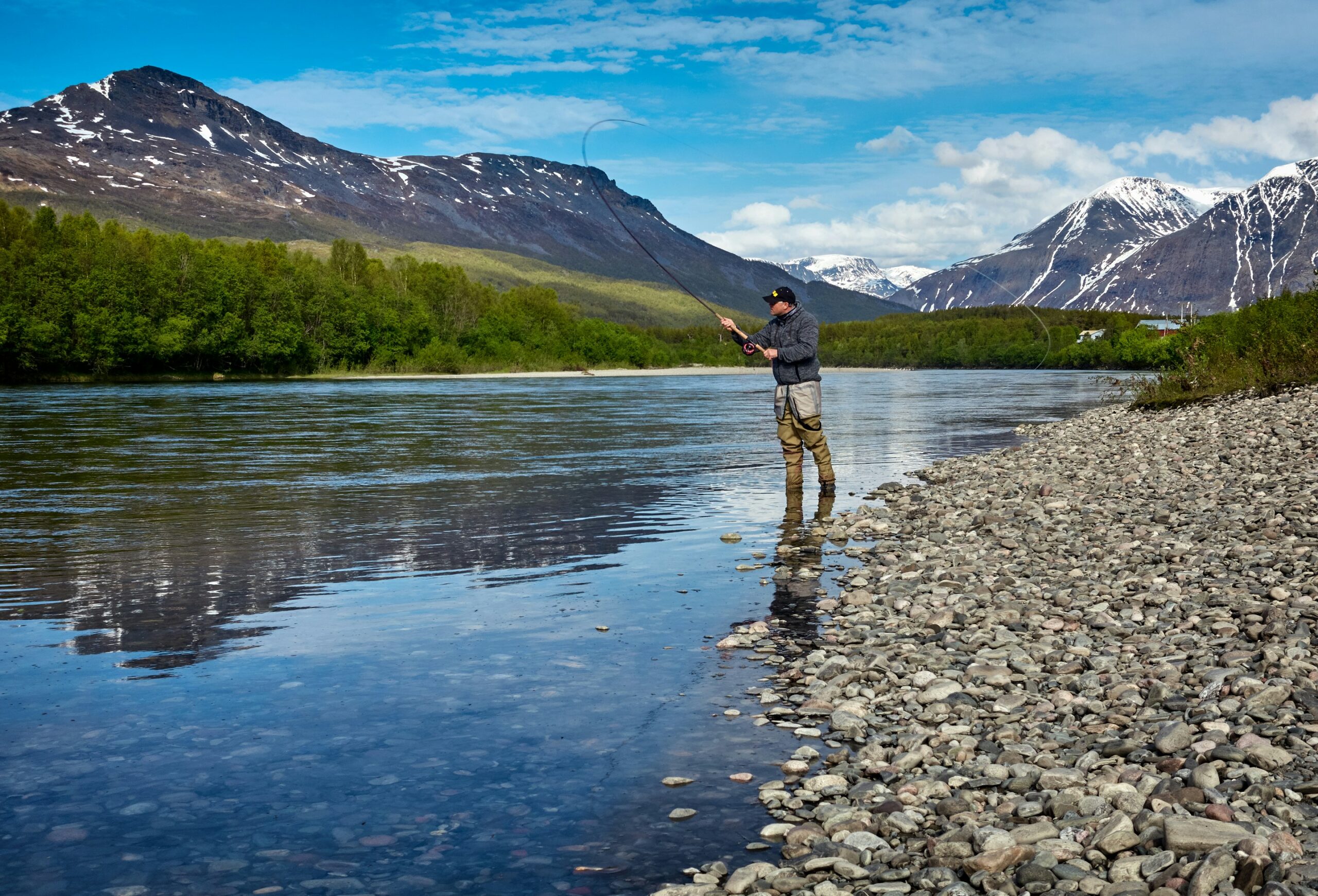
Specific Locations Fishing Season Start
Different fishing locations within freshwater and saltwater environments may have specific fishing season start times. By understanding these specific locations, anglers can target their desired fish species more effectively. Here are some examples of specific fishing locations and their corresponding fishing season start times:
Lake Fishing
Lake fishing season start times can vary depending on the specific lake and its geographical location. Some lakes may have specific regulations governing fishing times to protect important spawning periods. Anglers should consult local authorities or guides to determine the best time to start fishing in a particular lake.
River Fishing
Rivers offer a unique fishing experience, as the water flow and topography influence fish behavior. Fishing season start times for rivers can depend on factors such as water temperature, precipitation, and fish migration patterns. Understanding these factors and researching local fishing reports can help anglers plan their river fishing trips more effectively.
Ocean Fishing
Ocean fishing season start times can vary depending on geographical locations and specific species of interest. Coastal regions often have different regulations governing fishing activities, including designated seasons for certain fish species. Anglers interested in ocean fishing should consult local fishing guides or authorities to determine the best time to start fishing in a particular ocean area.
Pond Fishing
Pond fishing offers a peaceful and accessible option for anglers interested in freshwater fishing. The fishing season start for ponds can vary depending on the geographical location and specific fish species present. Anglers should consider factors such as water temperature, fish behavior, and local regulations to plan their pond fishing trips effectively.
Canal Fishing
Canals are man-made waterways that can provide unique fishing opportunities. The fishing season start for canals depends on geographical location, water flow, and fish species present. Canal fishing enthusiasts should research local conditions, consult fishing guides or local anglers, and familiarize themselves with any regulations or restrictions to have a successful fishing experience.
Reservoir Fishing
Reservoirs are artificial bodies of water created by damming rivers or streams. Fishing season start times for reservoirs can vary depending on the geographical location, water level, and fish species available. Reservoir fishing enthusiasts should research local conditions, consult fishing guides or local anglers, and familiarize themselves with any regulations or restrictions to plan their fishing trips accordingly.
Regulations and Laws Impacting Fishing Season Start
Various regulations and laws are in place to ensure the sustainability and conservation of fish populations, protect sensitive habitats, and prevent overfishing. These regulations impact the fishing season start and the rules anglers must follow. It is important for anglers to familiarize themselves with these regulations to avoid penalties and contribute to the long-term health of fish populations.
Local Fishing Regulations
Local fishing regulations, established by regional or municipal authorities, can dictate the fishing season start for specific areas. These regulations may include specific dates, catch limits, and gear restrictions. It is essential for anglers to be aware of and comply with these regulations to ensure a responsible and ethical fishing experience.
State/Provincial Regulations
State or provincial regulations govern fishing seasons and regulations within their respective jurisdictions. These regulations may align with or differ from local regulations. In addition to fishing season start dates, state/provincial regulations may address catch limits, size restrictions, and fishing methods. Anglers should be aware of the regulations specific to their state or province to avoid any legal issues.
Federal Regulations
Federal regulations are put in place to protect fish populations that migrate across state or provincial boundaries and ensure consistency in fishing practices. These regulations may cover specific fish species, protected areas, and commercial fishing activities. Anglers should familiarize themselves with federal regulations, especially if they plan to fish in multiple jurisdictions or target federally protected species.
Catch Limits
Catch limits are often set to prevent overfishing and promote sustainable fishing practices. These limits specify the maximum number of fish an angler can catch and keep in a single day or over a specific period. Catch limits may vary depending on the fish species and location. It is crucial for anglers to know and adhere to these limits to protect fish populations and prevent legal repercussions.
Fish Species and Protected Areas
Certain fish species may require protection due to their vulnerable status or ecological importance. Protected areas, such as marine reserves or conservation zones, are designated to safeguard critical habitats and sensitive species. Fishing season start times and regulations may be stricter in these areas to mitigate human impact. Anglers should respect these protected areas and fish populations by observing any restrictions or closures.
Fishing License Requirements
Most jurisdictions require anglers to obtain a fishing license before participating in recreational fishing activities. Fishing licenses help generate revenue for conservation efforts and enable authorities to enforce fishing regulations. The fishing license requirements may vary based on age, residency status, and type of fishing (freshwater or saltwater). Anglers should check the specific requirements for their jurisdiction and ensure they have a valid license before starting their fishing season.

Understanding the Best Time to Start Fishing
Knowing the best time to start fishing can significantly increase the chances of a successful fishing trip. Several factors contribute to the optimal fishing conditions for different fish species.
Species-specific Season
Each fish species has its own preferred season and conditions for feeding, spawning, and migration. Anglers interested in targeting specific fish species should research and understand their behaviors and timing. This knowledge can help anglers plan their fishing trips during the peak activity periods for their desired species, increasing their chances of success.
Preferred Climate Conditions
Water temperature, weather patterns, and other climate factors influence fish behavior and feeding habits. Understanding the preferred climate conditions for different fish species can help anglers predict when the fishing activity will be at its peak. For example, certain fish species may become more active during periods of stable or rising water temperatures. By monitoring weather forecasts and water temperature trends, anglers can plan their fishing trips accordingly.
Water Temperature and Oxygen Levels
Water temperature and oxygen levels play crucial roles in fish behavior and feeding. Each fish species has a temperature range within which they are most active and comfortable. Warmer water temperatures tend to increase fish metabolism, making them more likely to feed actively. Similarly, oxygen-rich areas, such as near inflows or areas with aquatic vegetation, attract fish. Anglers should consider these factors when determining the best time to start fishing.
Fish Behavioral Patterns
Observing fish behavioral patterns can provide valuable insights into the best time to start fishing. Fish exhibit certain behaviors during different times of the day, tides, or seasons. For example, some fish species may be more active during early morning or late evening hours, while others prefer feeding during high tide. By studying these behavioral patterns, anglers can plan their fishing trips to align with the fish’s natural tendencies.
Tips from Local Anglers and Fishing Guides
Local knowledge is invaluable when it comes to understanding the best time to start fishing in a specific area. Local anglers and fishing guides are familiar with the seasonal patterns and fish behavior in their region. They can provide insider tips on when and where to fish, which bait to use, and which techniques are most effective. By seeking advice from local sources, anglers can greatly improve their fishing success.
Importance of Knowing the Fishing Season Start
Understanding the fishing season start is essential for anglers for several reasons. Whether it’s maximizing fishing success, contributing to sustainability and conservation efforts, avoiding penalties and legal issues, or planning fishing trips and vacations, knowing when to start fishing is crucial.
Maximizing Fishing Success
Knowing the fishing season start allows anglers to plan their trips strategically, increasing their chances of success. By targeting fish when they are most active and abundant, anglers can plan their fishing techniques, bait selection, and fishing locations accordingly. This knowledge can lead to a more productive and fulfilling fishing experience.
Sustainability and Conservation
Abiding by fishing regulations and knowing the fishing season start helps protect fish populations and preserve the environment. By respecting catch limits, protected areas, and fishing seasons, anglers contribute to the sustainability of fish populations and promote ethical fishing practices. This ensures that future generations can continue to enjoy fishing and the natural resources it provides.
Avoiding Penalties and Legal Issues
Ignorance of fishing regulations can result in penalties, fines, or even legal consequences. By familiarizing themselves with the fishing season start and other regulations, anglers can avoid unintentional violations and mitigate potential legal issues. Responsible anglers not only adhere to the rules but also act as stewards of the waterways, setting a positive example for others.
Planning Fishing Trips and Vacations
Knowing the fishing season start allows anglers to plan their fishing trips and vacations well in advance. By considering the best time to start fishing in a particular location, anglers can ensure they are at the right place at the right time. This maximizes the chances of having a successful and memorable fishing trip, regardless of whether it’s a weekend getaway or a longer vacation.
Investigating Changes in Fishing Season Start
Changes in fishing season start times reflect the dynamic nature of our environment and can be influenced by various factors. Understanding these changes is crucial for anglers to adapt their fishing strategies and contribute to the conservation of fish populations.
Climate Change Impact
Climate change is altering the timing and intensity of seasons, which in turn affects fish behavior and the fishing season start. Rising temperatures, changes in precipitation patterns, and fluctuating water levels can disrupt the natural cycles on which fish rely. Anglers need to monitor these changes and adapt their fishing plans accordingly to maintain the health and productivity of fish populations.
Altered Fish Migration Patterns
Changes in water temperature, ecosystem dynamics, and food availability can impact fish migration patterns. Some fish species may shift their migration routes or timing, affecting the fishing season start. Anglers should research and stay informed about such changes to ensure they are targeting migrating fish effectively and maintaining sustainable fishing practices.
Shifts in Water and Air Temperature
Changing climate conditions can lead to shifts in water and air temperature. These shifts impact fish behavior, metabolism, and availability. Warmer water temperatures may cause fish to become less active or seek refuge in cooler, deeper waters. Understanding these temperature shifts can help anglers adjust their fishing techniques and target the most appropriate fishing locations.
Effects of Overfishing and Environmental Factors
Overfishing and environmental factors, such as pollution and habitat destruction, can significantly impact fish populations. These factors can disrupt the natural balance and affect the fishing season start. It is crucial for anglers to recognize the importance of sustainable fishing practices and contribute to the conservation of fish populations by following regulations and practicing catch-and-release fishing when appropriate.
Conclusion
Understanding the factors that determine the fishing season start and the specific fishing season start times for different locations is essential for anglers. Geographical location, climate conditions, and regulations and laws all play a crucial role in determining when fishing can begin. By knowing the fishing season start, anglers can maximize their fishing success, contribute to sustainability and conservation efforts, avoid penalties and legal issues, and plan their fishing trips and vacations accordingly. Additionally, investigating changes in fishing season start can help anglers adapt to the dynamic nature of our environment and contribute to the long-term health of fish populations. By staying informed and responsible, anglers can continue to enjoy the joys of fishing while preserving the natural resources for future generations.



